NIVAs Adam Hartkes Testimony Before Congress
Hearing on “Examining the Impact of COVID-19 on the Live Event Entertainment Industry”
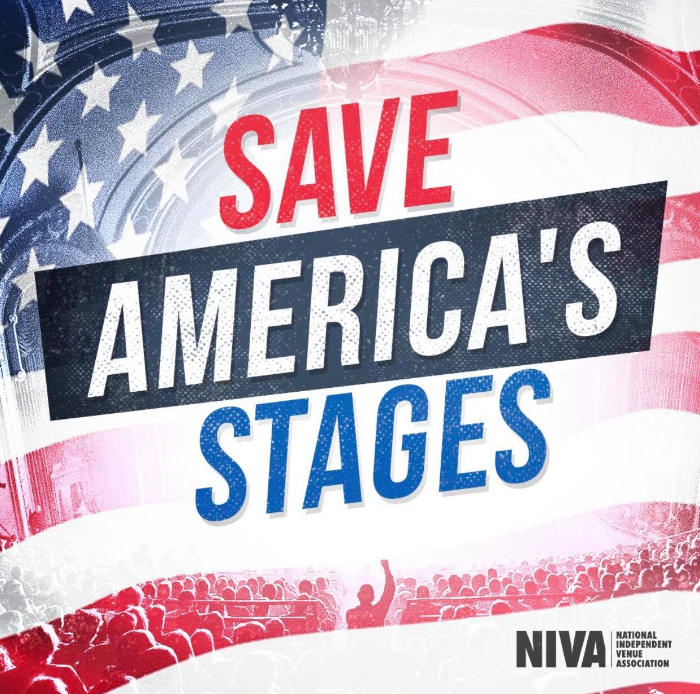
NIVA
Whats Up category interest
Testimony of Adam Hartke
Co-owner – Wave and The Cotillion
Advocacy Committee Co-Chair - National Independent Venue Association (NIVA)
Before the U.S. Senate Committee on Commerce, Science, andamp; Transportation
Subcommittee on Manufacturing, Trade, andamp; Consumer Protection
Hearing on “Examining the Impact of COVID-19 on the Live Event Entertainment Industry”
Good morning Chairman Moran, Ranking Member Blumenthal, and distinguished members of this committee. Thank you for inviting me to testify. My wife and I are small business people who co-own two live music venues in Wichita, Kansas, Wave and The Cotillion. I also serve as advocacy committee Co-Chair for the National Independent Venue Association (NIVA), a coalition of nearly 3,000 independent music venues and promoters in all 50 states and DC that formed as a response to the pandemic. My career in the live music industry began 20 years ago, as a student at Kansas University (KU) and a member of the promotions staff at the student run radio station KJHK, hanging posters, working merchandise tables at shows, and helping bands carry gear. My early aspirations came from hearing stories of my grandparents working shows at The Cotillion Ballroom in Wichita in the 1960s. My grandfather helped manage the facility, and my grandmother worked the box office.
My uncle, who worked on the artist management and label side of the music industry for 45 years, also captured my attention as a child and seeded my future career. In the years following my time at KU, I moved back to Wichita with the goal of creating a thriving live music industry in my hometown. At that time there was little opportunity for a kid without resources and capital. I found myself doing small DIY shows, sleeping in a makeshift recording studio I had set up in an old musty office space I was renting, and cooking ramen on a space heater. Luckily, I found support through my colleagues and friends in the industry and landed a job with IATSE local 190 working load ins/outs, and jumping at every chance offered when the phone rang. I was broke and couldn’t afford a car, so I would catch a ride to the venue with the Union Business Agent, who took a liking to me and would always make sure I could get to work. Most of my friends and family told me to forget about doing shows and just go get a “real job.” But I felt I was making progress, even though it seemed slow to those watching from the sidelines.
The following decade I continued to work diligently. I found myself a job as operations andamp; promotions director at the Wichita Orpheum Theater, and later as operations director at Wichita Festivals Inc, which produces the Wichita River Festival. At Wichita Festivals I shared a common experience with my father, who helped set up the infrastructure of the very first Wichita Riverfest in 1970 through his job as a laborer within the parks department. Live music has always been an integral part of our family dynamic. From my parents traveling to the Denver Pop Festival in 1969 on their honeymoon to see Jimi Hendrix, Creedence Clearwater Revival, and Frank Zappa, to the hundreds of shows they took me to as a child. Some of my earliest memories stem from the joy I felt when attending shows with my parents. And then, in 2018, I became a co-owner of The Cotillion, where my grandparents had worked nearly 60 years ago. My mother still has memories of babysitting her 4 younger siblings on nights my grandparents had to work shows. Becoming a co-owner of the Cotillion was the realization of not only my dream, but it seemed to be the realization of the dreams of numerous generations of those within my family.
In 2018, I also realized another dream of mine, to design and build a large outdoor venue in downtown Wichita. This idea started with a drawing I did on graph paper, and the next year Wave was built and opened with my wife Jessie and me at the helm of its operations.
In 2019, both businesses blossomed. We pushed more events through The Cotillion than previous years and Wave quickly became a favorite destination for concert goers from all over the region. Both venues brought visitors from all 50 states, increasing tourism in Kansas and driving our local economy. We also expanded the cultural offerings within Wichita, taking big risks on shows that typically would not play our market. While these shows were not always financially successful, they had a huge impact on the overall morale of our city. We found we were in line with the Chicago Loop study that shows for every $1 spent on a concert ticket at a small venue, $12 of economic activity is generated for local businesses.
By the end of 2019, we were projecting 2020 to be our best year on record, and our community was set to reap the benefits. We made facility improvements at The Cotillion to make the experience more enjoyable for artists as well as the customers. At Wave, we built an upper deck that would expand the capacity of our outdoor space, create a unique show experience, and further increase the economic benefit of our venue to Kansas.
The beginning of 2020 was going well. Revenues were up at both venues. Our facility improvements were completed, having invested a lot of capital in preparation for a very busy year. Then, on March 13, in response to the COVID-19 pandemic, our venues were mandated closed by Sedgwick County. All operations ceased as we scrambled to understand the impact this would have on our industry.
Our employees are our family. Many of whom I worked with in IATSE or during my DIY promotion days. We eat together, sweat together, bleed together, smile together, and cry together. The first concern I had was what we could do to help our employees through this if it lasts. We quickly created a plan to pay our core employees crisis pay while we were shuttered. I then looked at the hard costs of utilities, rent/mortgage, insurance, licensing, and all the other expenses we would still be responsible for paying. Gutted is the only word I can think of that truly reflects the feeling my wife Jessie and I had when projecting our finances through 2020. Not only would the business’ survival rely on furloughing or laying off our employees, but all of our reserves and liquidity would completely dry up within 6-9 months. We quickly realized, much to our horror, that without help, we would not make it through this crisis. Our dreams were shattering in front of our eyes. Through no fault of our own, we had to tell our employees that we could not continue to pay them. We faced the looming disaster of our personal guarantees on the business being called out, which in turn made it entirely possible that we would lose our home, our son would not have a roof over his head, and we would lose everything.
Both of our venues received PPP assistance, but that ran out in early June; the funds were used as intended with 75% going to payroll. Since then, most of our employees have been furloughed or laid off, and we’ve done our best to help them navigate the pandemic unemployment assistance (PUA) program. Many of our employees have been with us for many years, or decades, and have been trained to a point where they are some of the best in the industry. In smaller markets, like Wichita, one of our biggest fears is that we will lose these highly trained professionals to other industries, or even worse to other communities. The restrictions on PPP also made it impossible to pay our bills in full, and the fact that we are fully shuttered with no work for our employees to do, further complicated our situation. Lastly, the amount of PPP, 2.5X payroll, wasn’t sufficient for an industry that has 95%+ revenue loss, and has been fully shuttered now for nearly 9
months, with likely another 9 months of being fully shuttered ahead of us. With PPP we were able to pay 8 weeks of payroll, and about half of a month of core bills.
Related Article: Save Our Stages Fest Announced
Beyond PPP, our venues received assistance from EIDL loans. Once again the amount of the EIDL loans did not cover the extent of impact this crisis has had on our industry and within 3 months these funds were depleted. This is now a debt we will be paying off for the next 30 years. We are expecting to be closed for a total of at least 18 months, with no revenue, but still shouldering 100% of our core bills. We also fear that once we are able to reopen, we will face a recovery period of at least 6-18 months in which our revenues will be drastically reduced due to social distancing measures and capacity restrictions. Our business model relies on our ability to sell a minimum of about 80% of our total capacities, so operating at anything less than that will automatically cause us to lose money. Coupled with additional costs incurred due to social distancing, extra cleaning, extra safety protocols, and the additional equipment needed to safely operate, it will be very
difficult for us to simply break even. It is likely we will not realize our full revenue streams until 2023 or later, which puts us in a very volatile situation coming off of such a crippling closure.
Again, many of us have personal guarantees on our businesses. If we do not get the help we need, we will lose our homes, our children will not be provided for, and everything we have worked for will vanish before our eyes due to no fault of our own. A survey of NIVA members shows that 90% of mom andamp; pop venues, venues like Wave and The Cotillion, will go under without federal assistance. We have remained closed in the name of public health and safety, risking everything we have with no promise from anyone that we will receive further aid, only the hope that Congress will deliver for us. But we have not simply been sitting at home hoping we’ll get relief. NIVA formed shortly after the pandemic so that we could not only share tips and resources to navigate this new normal, but also to band together and fight for our survival, which has become our full-time job. And we’ve been glad to do this alongside and with support from others across the live event industry -- from the artists to our workers to our vendors to our fans. We are very mindful of the ecosystem of the live entertainment industry as a whole.
Related Article: New York’s Struggling Music Venues Spotlight the Need for Federal Aid
Unlike many industries, we rely on a national reopening before we can resume operations, as the artists that play in Wichita have to tour across the country. In other words, we have no “inventory” until artists begin touring again. And due to inconsistencies in local mandates and restrictions on venues, artists are unable to route shows at this point. The booking and promoting process has a 3-6 month lead time on average, which adds an additional layer of complexity to our recovery period. Any seemingly small glitches like unexpected temporary closures or restrictions due to outbreaks, inconsistencies in local COVID related licensing policies, consumer confidence causing low ticket sales, or many other unknown circumstances will make navigating the national reopening much more difficult for our industry.
Our venues are the catalyst to many artists' careers. Without smaller stages for new artists to perform, we will see fewer superstars in the future, and in turn the entire industry will suffer. Recently, a letter was sent to Congress on NIVA’s behalf with over 600 artists signatures supporting our request for help. Live events provide 75% of artists’ income, and without independent stages, many artists will have no options of spaces to perform once this crisis is over.
Because of our focus on artists we have a strong alliance with the National Independent Talent Organization which represents hundreds of mom and pop talent agents and managers. We also have support from organizations like RIAA, A2IM, Recording Academy, Country Music Association, and Music Biz. Without these industry partners it would be nearly impossible for any of us to operate in isolation.
Beyond our industry partners, and those we do business with, our fans miss attending shows at our venues. One of the biggest signals that this crisis is behind us will be the ability to go to shows with your friends and loved ones once again. To date, we have had more than 2.1 million emails sent to Congress from our fans in support of the Save Our Stages Act.
We also have bipartisan support of 57 Senate cosponsors for the Save Our Stages Act, as well as 172 House cosponsors. The Save Our Stages Act has been in bills presented by Republicans, Democrats, and bipartisan groups.
What we are asking for is the passing of the Save Our Stages Act as written and an extension of PUA to take care of our employees until we can rehire them and resume operations. This is what will save the mom and pop venues across the country, and ensure we are there to once again be the anchors within our communities, and the overall live entertainment ecosystem within America.
The Save Our Stages Act (S. 4258/H.R. 7806) led by Senators John Cornyn (R-TX) and Amy Klobuchar (D-MN) and Representatives Peter Welch (D-VT) and Roger Williams (R-TX):
Ensures forgiveness and increases access: This bill establishes a grant program for live venue operators, promoters, producers and talent representatives. By offering grants, forgiveness is ensured. In addition, grants increase access for business owners that may not have a relationship with banks. Finally, the bill extends eligibility to state and locally owned venues (like Red Rocks in Denver, CO) and non-profits that otherwise meet the eligibility requirements.
Doesn’t penalize industries that rely on part-time employees: Counts Full Time Employees as 1 employee and part-time employees as 1⁄2 an employee. Based on this definition, NIVA members have fewer than 250 FTEs.
Ensures sufficient funding to survive until reopening: Rather than basing loan amount on payroll, grants are made to eligible recipients in an amount equal to 45% of gross earned revenue from 2019, with a cap of $12 million.
Provides long-term support: Provides supplemental grants to independent businesses that demonstrate continued need based on continued revenue loss. This is the only bill that recognizes venues will be closed well into 2021 and seeks to provide truly long-term support.
Ensures the ability to keep the lights on: With no restrictions on percentage used for payroll versus other costs, the bill permits recipients to use grants for costs incurred during the COVID pandemic for rent, utilities, mortgage obligations, PPE procurement, payments to contractors, regular maintenance, administrative costs, taxes, operating leases, and capital expenditures related to meeting state, local, or federal social distancing guidelines.
Make no mistake, time is of the essence. After 9 months, venues are going under at a quickening pace. We desperately need help now, not next month or the month after. We need Congress to pass the next Covid Relief bill this week.
On Dec 7 of 2020, The Cotillion celebrated its 60th year of continued operation. Instead of a big show and a week-long celebration, the historic venue sat empty and shuttered for the first time. Jessie and I sat at home, as did our employees, wanting nothing more than to be back at work surrounded by the ones we love doing the thing we are most passionate about. Our biggest fear, and I think I can say with confidence that this is a collective fear of thousands across the country, is that we will have to close our doors forever and the institutions for which we have sacrificed so much will be destroyed after weathering so many hard times throughout history. We are a small family business, and have always hoped we would persevere for generations to come. We are now pleading with Congress to help those like us, don’t let the music die, and please save our stages. With your help we can survive this, our small family business will survive and maybe someday my
son Hank will take over and the music will be passed on for generations to come.
More Photos
More from What's Up
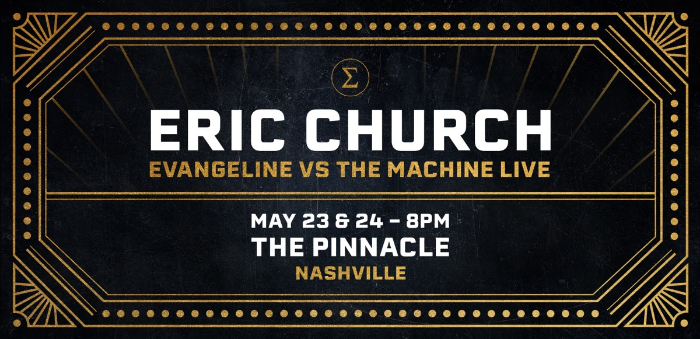
What's Up
Eric Church Brings Evangeline vs. The Machine Live to Nashvilles The Pinnacle May 23 - 24
Tickets On Sale to Church Choir Members Monday, March 31
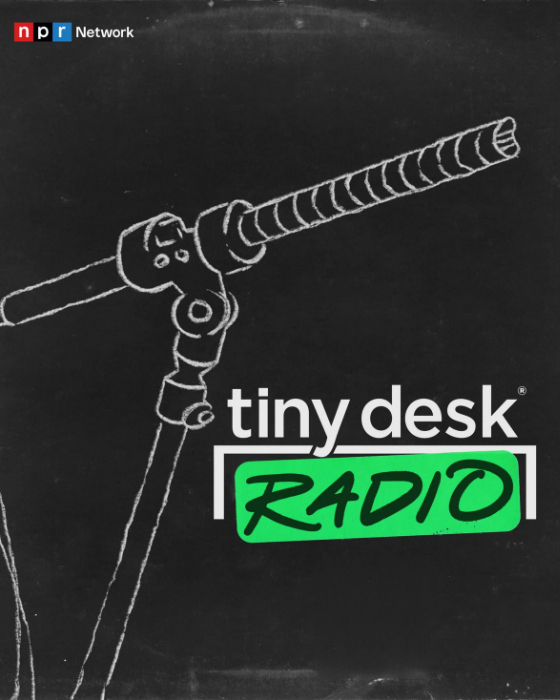
What's Up
NPR Musics "Tiny Desk Radio" Show Debuts on Radio Stations Nationwide April 17
Tiny Desk Radio can be heard on radio stations across the country starting April 17
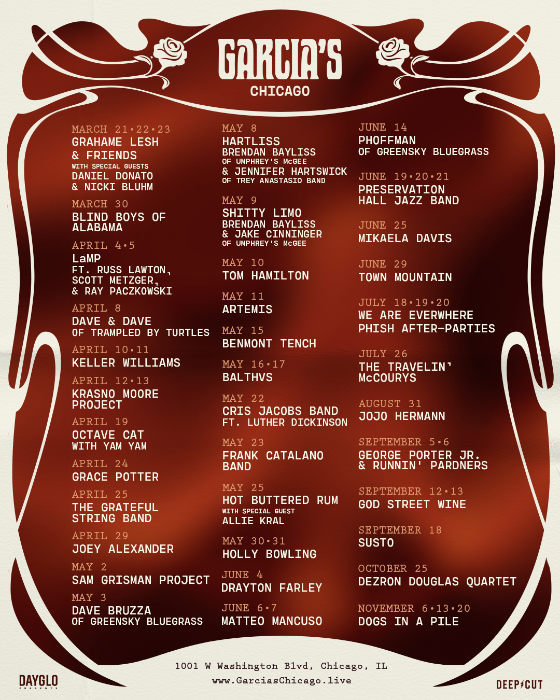
What's Up
Dayglo Presents Announces Garcia’s Chicago, A New Concert Venue And Culinary Destination
Venue Celebrates The Life, Music And Cultural Impact Of Jerry Garcia’s Legacy
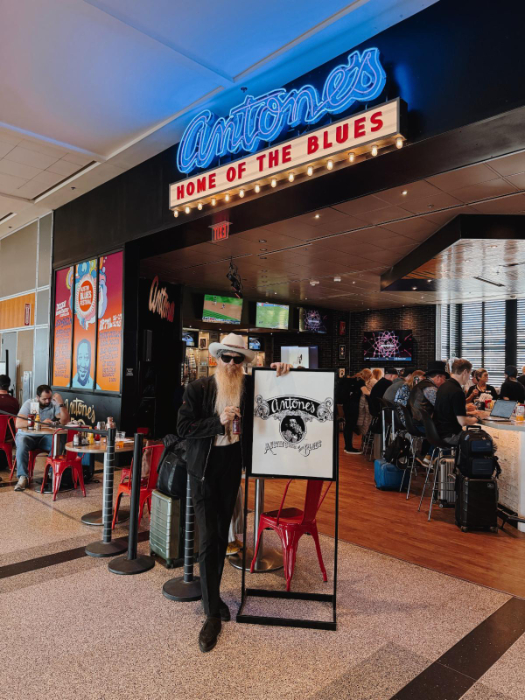
What's Up
Antone’s Opens New Location at Austin-Bergstrom International Airport, Bringing Iconic Blues Legacy to Travelers
Timing of new location coincides with Antone’s 50th anniversary
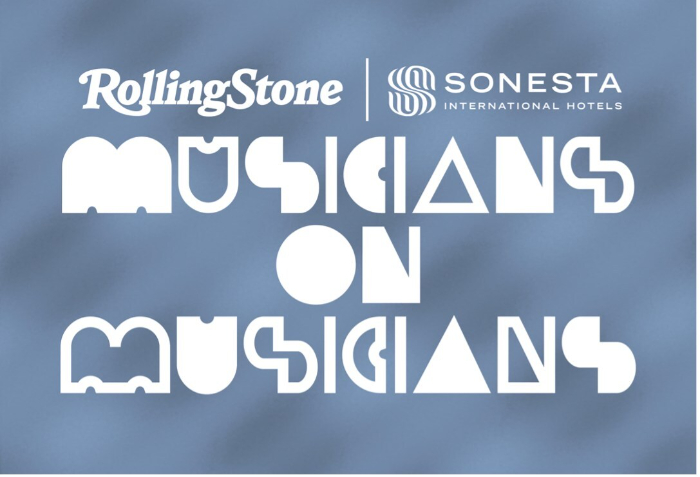
What's Up
Rolling Stone and Sonesta Announce Expansion of Musicians on Musicians Event Series with a Five-City Tour in 2025
The "Musicians on Musicians" Tour Kicks off in Austin on March 24, with Charley Crockett and Noeline Hofmann

What's Up
Sara Bareilles, Jackson Browne, and Kristin Chenoweth Join Wyclef Jean As Honorees Of Music Will 2025 Benefit
Benefit Supports Music Will’s Mission to Transform Young Lives Through Innovative, Popular Music Education Programs in Public Schools
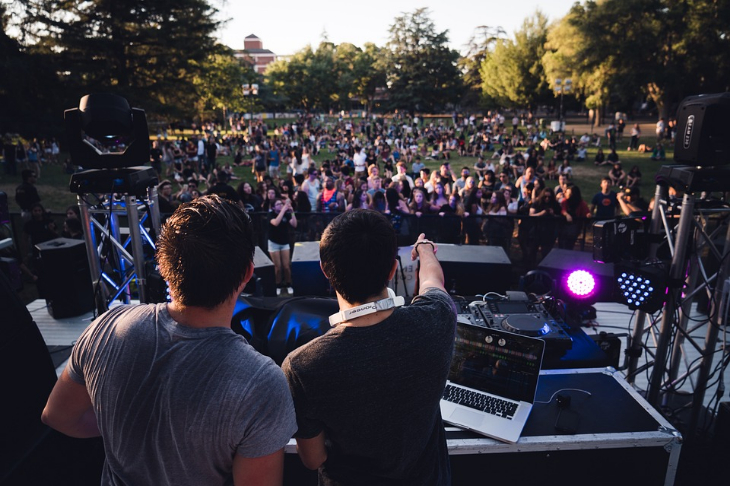

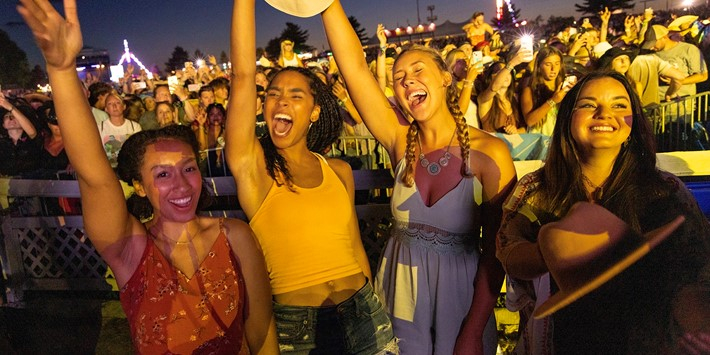
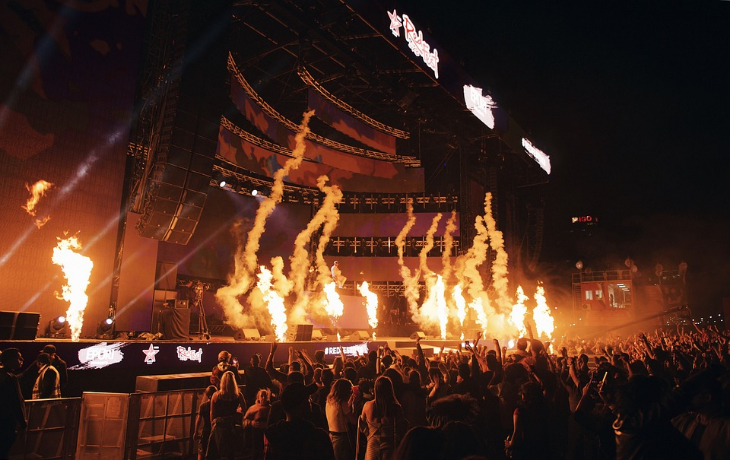

 Newsletter Signup
Newsletter Signup